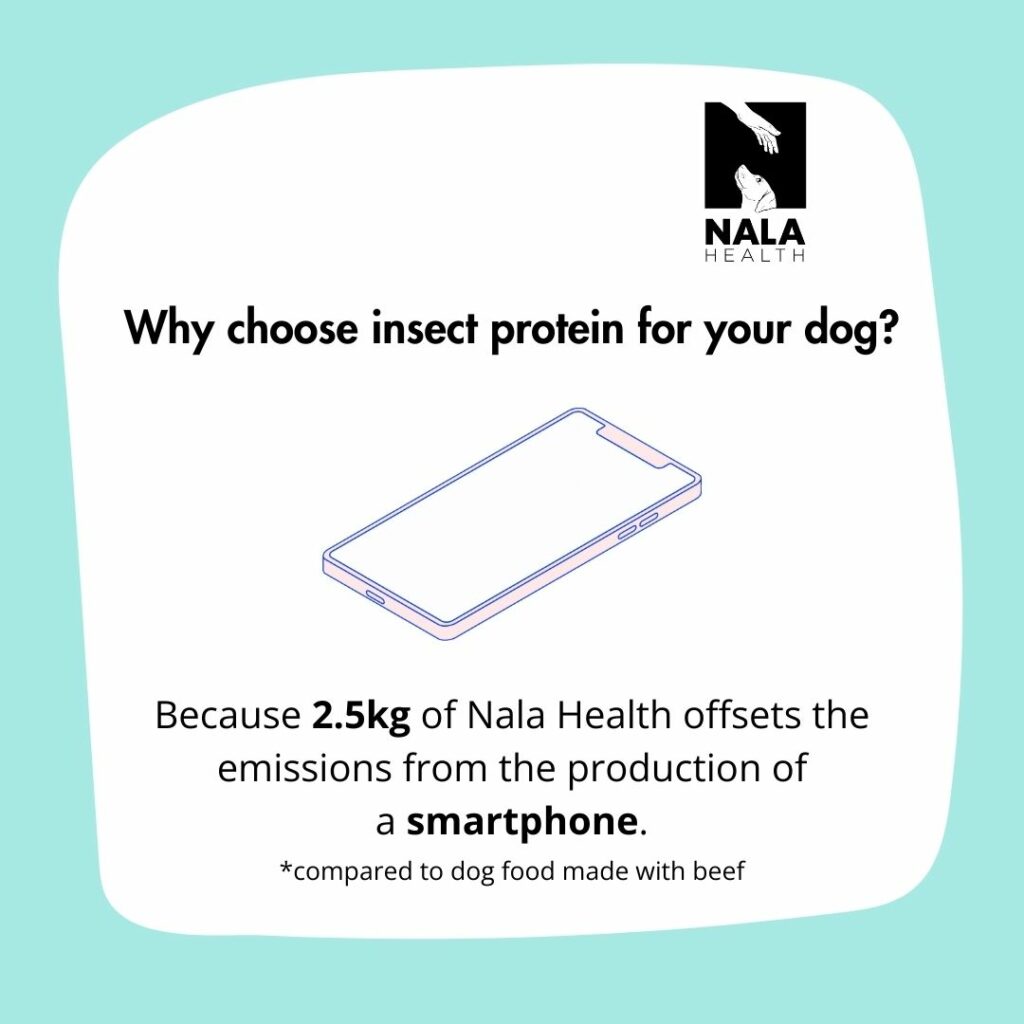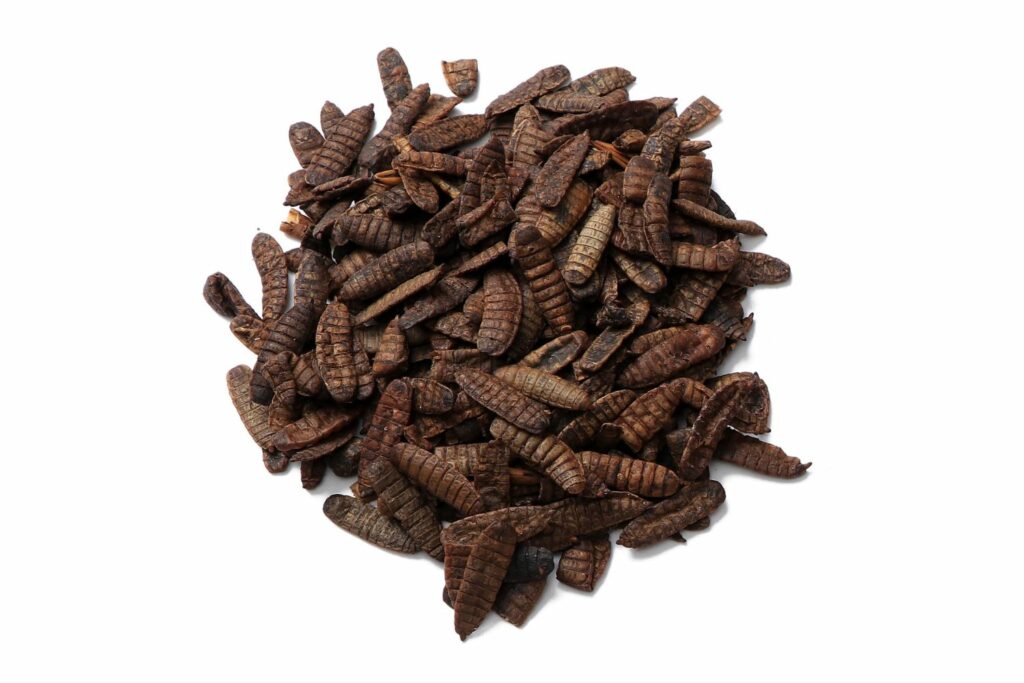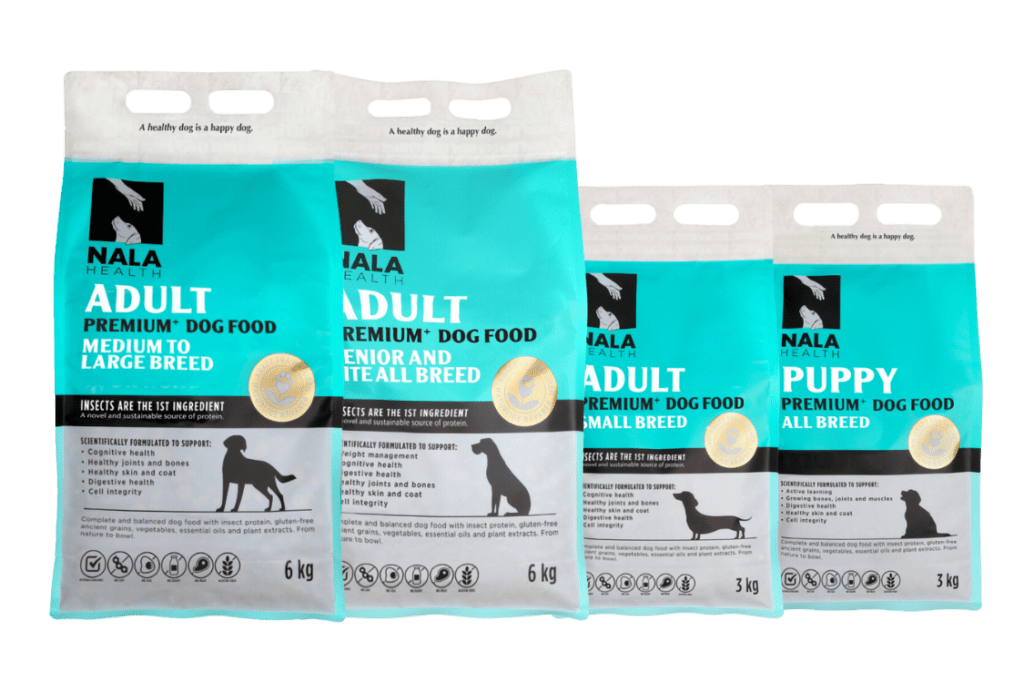A Greener Home with Nala Health
 Synne Hemsen Berg
Synne Hemsen Berg
Every day, millions of positive things are done to contribute towards a happier and healthier planet. Individuals, companies and organizations are all working in their own way to reduce the pressure on natural resources and reverse the effects of Global Warming. At Nala Health, we believe that the health of our dogs and the well-being of the planet are connected. That’s why we’ve chosen to use black soldier fly larvae (BSFL) in our dog food.
The transition from traditional meat-based products to insect protein offers more than a nutritious alternative, but also significantly reduces the ecological footprint of your dog’s meal. It is important to note that calculating CO2 emissions is complicated and we have used general figures as a starting point.
Small Changes, Big Impact
In the examples below, we have assumed that the dog food contains the same inclusion of BSFL and beef and assumed both proteins are produced locally.

Travel lighter: Imagine saving the carbon emissions equivalent to a round trip from Cape Town to Johannesburg by feeding your dog just 11kg of Nala Health dog food, which equals a whopping 340kg of CO2.
Every meal counts: A 12kg bag of Nala Health dog food can save emissions equivalent to a trip through the length of the Kruger National Park. That means a CO2 reduction of 360 kg for every bag your dog eats.


Greener fashion: The environmental cost of a pair of jeans is significant. By feeding your dog 2.5kg of Nala Health dog food, you offset the CO2 emissions equivalent to the production of a pair of jeans, saving 80kg of CO2.
Tech with a twist: Remarkably, 2.5kg of Nala Health not only provides your dog with optimal nutrition, but also saves CO2 emissions equivalent to the production of a smartphone, which equates to a reduction of 72kg of CO2.

We recognize that calculations of CO2 emissions are complex and approximate. The figures provided serve as a visual representation of the significant difference in environmental impact between traditional meat-based and insect-based dog food.
Why BSFL?
Resource efficiency: BSFL are experts at converting plant waste into nutritious food. The larvae of Nala Health, for example, eat pure plant waste from the brewing industry. 5kg of spent grain is thus converted into 1kg of insect protein.
Low carbon, high nutrition: BSFL is nutritious and contains complete protein for our dogs. In addition, it adds healthy fats, minerals and fibre to the food. A bonus: BSFL does not require antibiotics or growth hormones.

Biodiversity: Insect protein is produced vertically indoors under climate-controlled conditions, which means it requires very little space compared to other livestock. In just 1m2 of floor space, more than 100 kg of protein can be produced in a week. Vertical farming methods helps reduce deforestation and loss of biodiversity globally, which is often a result of conventional farming.
Reduced waste: BSFL farming can be part of a circular economy, where plant waste is converted into insect protein, and the waste from the insects is used as organic fertilizer.
Nutritional Benefits of Insect Protein
Black soldier fly larvae (BSFL) are an excellent source of protein containing a range of nutrients that are important for your dog’s health. These insects have a complete amino acid profile, making them an excellent alternative to traditional meat ingredients, especially for dogs with food allergies and sensitivities.

In addition to high-quality complete protein, black soldier fly larvae contain chitin, a prebiotic fibre that can improve gut health in dogs. Fibre is essential for a healthy gut, supporting the immune system and improving nutrient absorption.

Nala Health wants to contribute to more sustainable and reliable food production by offering products that contribute positively to dog health, social sustainability and the environment. It is good for the dog and the planet.

